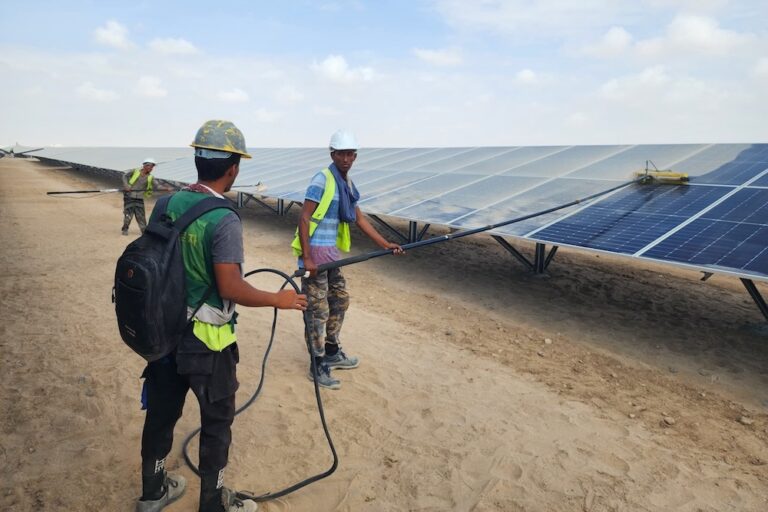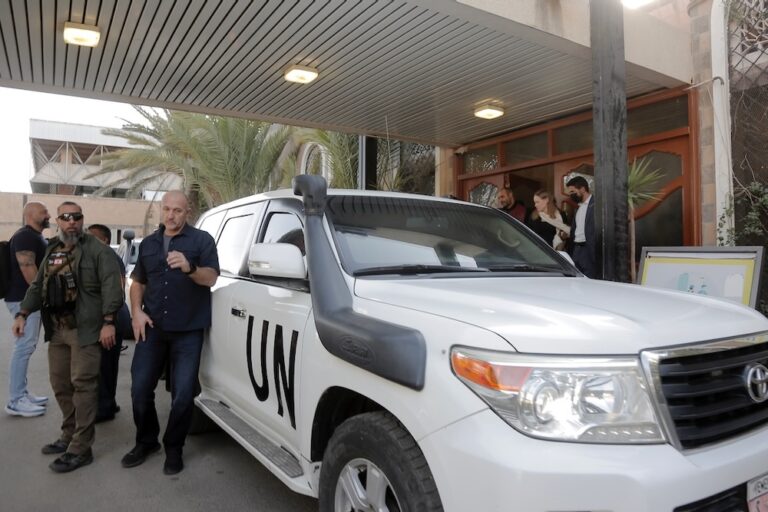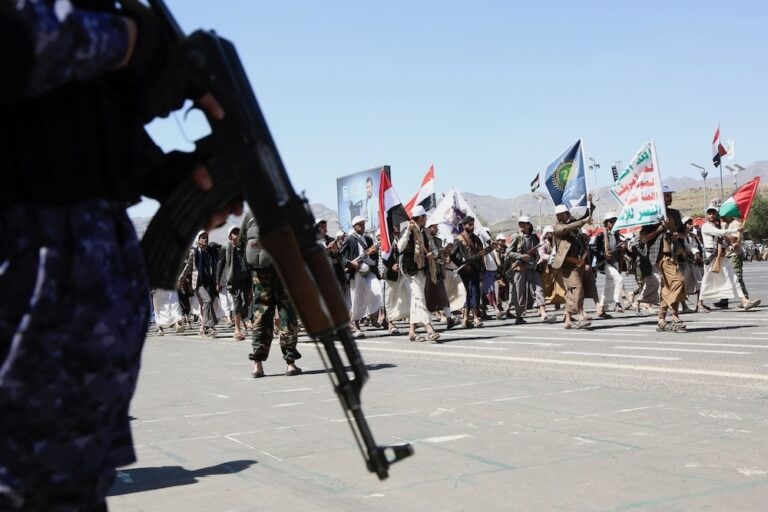Security forces raided the Sana'a offices of the satellite news channels after they broadcast clashes between police and protesters in the south.
(CPJ/IFEX) – New York, March 12, 2010 – The Committee to Protect Journalists condemns Yemeni authorities’ seizure of equipment enabling the pan-Arab satellite news channels Al-Arabiya and Al-Jazeera to broadcast live from the country.
Security forces raided the Sana’a offices of Al-Jazeera and Al-Arabiya on Thursday, according to news reports and CPJ interviews. The move came after both channels had broadcast clashes between police and protesters in the southern town of Daleh, as well as rallies in the north against the crackdown. The stations can still report and transmit taped coverage.
In a statement, Yemen’s Information Minister Hassan al-Lozy said that the channels did not have proper authorization for the equipment, a claim both stations dispute. Al-Lozy added that the equipment would eventually be returned to the stations.
“We condemn this arbitrary seizure and ask the authorities to allow Al-Jazeera and Al-Arabiya to resume their live broadcasts without delay,” said CPJ Middle East and North Africa Program Coordinator Mohamed Abdel Dayem. “To suddenly assert that the confiscations are due to lack of authorization is not credible given than both channels have been broadcasting from Yemen for years without such a claim by authorities.”
Al-Arabiya’s bureau chief in Sana’a, Mahmud Munassar, told CPJ that his employees were briefly detained and questioned. He called the raid an “intimidation” tactic designed to silence the channel’s coverage of Yemen. “Al-Arabiya received the green light from the president of the republic in 2009 to bring live broadcasting equipment into Yemen,” Munassar told CPJ. “The Sana’a government is clearly trying to cover up its policies in the south.”
Murad Hashim, Al-Jazeera’s bureau chief in Sana’a, told CPJ that a Yemeni official had telephoned him earlier on Thursday, cautioning that measures would be taken if the channel covered a meeting of southern opposition leaders.
Dissatisfied groups in the south of the country have increasingly accused authorities of marginalizing the region’s residents. Since April 2009, as clashes between government forces and protesters have been reported throughout southern Yemen, CPJ has documented the persistent harassment of the country’s press, including two raids on a newspaper office and the banning of multiple papers. Journalists have gone missing and have been imprisoned. In May 2009, Yemen established a special court to examine media and publishing offenses.


